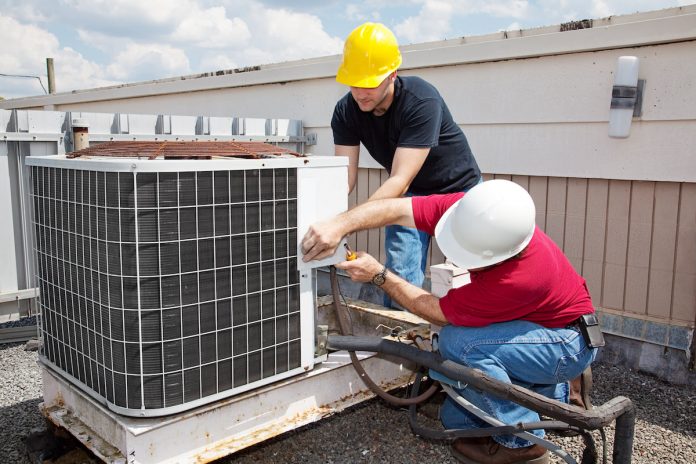What Is Involved In HVAC Maintenance?
Maintaining the HVAC system is vital to avoid any surprises with its heating and cooling of your home, thereby affecting its comfort during summer or winter. Routine maintenance also saves you time and money. What is involved in HVAC maintenance? This must be what you’re asking yourself if you’re new to HVAC maintenance, and if this is the case, this article is the right place to start.
HVAC maintenance entails maintaining the air conditioner or heater by examining, testing, cleaning, and if necessary, replacing or repairing specific system components. Let’s take a look at everything the certified HVAC repair professional does during routine maintenance.
-
Visually Examining the Whole System
It’s advised that you schedule the routine maintenance of the HVAC system at least once every year. You can visit websites that offer services that’ll check your HVAC system. They follow Ashburn HVAC repair tips to make sure that they examine your HVAC system properly. Only after this inspection by a technician can you be confident that the heating and cooling system won’t stop working suddenly. Should this happen, you’re forced to either opt for an alternative method of cooling or heating your home.
But with regular inspection and maintenance of the HVAC unit, this should be the least of your concerns. This is because the professional contractor ensures that every component in the system is in excellent condition, thereby extending its lifespan. When doing this inspection, this expert will be paying close attention to several items including;
- Drain Pan
- Compressor
- Refrigerant Levels
- Furnace
- Motor
These are some of the components that’ll be inspected to ensure that everything is in excellent working condition and that your HVAC system is maintained properly.
-
Changing the Filters
A clean filter is essential in ensuring the HVAC unit works effectively and efficiently. Therefore, it needs to be changed after every 30 to 90 days. If you ignore this, your HVAC system will need to work twice as hard to regulate your home temperature.
To avert such situations, you should ideally invest in a new filter every month. Although this might seem expensive, it’ll cut down your energy bills which proves to be a frugal decision.
-
Lubricate the Moving Parts
There are many moving parts in the HVAC unit, including furnaces, circulation units, and compressors. But for these moving parts to keep working smoothly and prevent overheating and breakdown, they need to be lubricated often. This is necessary as lubrication reduces wear and tear as the friction level is drastically cut down. It also helps reduce your energy bills and overall electricity use since the moving parts are moving smoothly against each other.
-
Check the Thermostat
The thermostat should always be function optimally to guarantee you comfort across different seasons. Today, many of the HVAC systems with a programmable thermostat enables you to control temperatures inside your home and have it on a schedule. For instance, you can set the thermostat when not around to reduce the heat and help you cut down on your energy bills.
During routine maintenance of your HVAC unit, the professional contractor inspects the thermostat to confirm if the thermostat temperature is the same as the actual temperature. In case of any variance, the whole HVAC system or performance of the thermostat should be assessed.
-
Inspect the Electrical Connections
As time passes, the electrical connections in the HVAC system start loosening. Any loose connections in the HVAC unit aren’t only dangerous but also affect its smooth operation. It might also lead to the unit’s destruction, thereby necessitating you to get an AC replacement or furnace replacement.
During routine maintenance, the technician will check whether there are any loose connections in the system. They’ll also be checking for any damaged wires and replacing them if they need to be cut down the risk of component failure or fire outbreak.
-
Check the Condensate Drain
The heat pump and air conditioner shouldn’t have any debris and clog as this can block condensed water from flowing. This leads to an increase in the system’s moisture levels instead of the condensate collecting in the pan and draining outside the system. Over time, this leads to the formation of algae and sludge that eventually blocks the pipe.
The excess moisture in the system also leads to other issues including;
- Uneven temperature regulation
- High humidity levels in your house
- Growth of mold
- Compromised air quality
- Water damage
Over time, these issues will also destroy the HVAC unit. Scheduling routine maintenance by a professional contractor removes and cleans out the condensate drain to remove all the excess moisture. As a result, this helps them ensure the drain is working correctly.
Takeaway
It’s easy to overlook the importance of routine maintenance of the HVAC system. However, this is a mistake you shouldn’t commit, thus ensuring this system continues working efficiently and effectively. This task is best left to a licensed professional contractor and if you were curious what they did, mentioned above is everything done during the routine HVAC maintenance.
Thank you for reading What Is Involved In HVAC Maintenance






